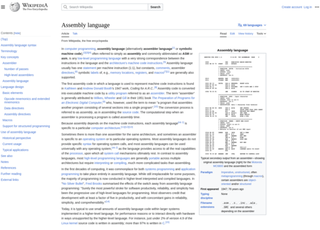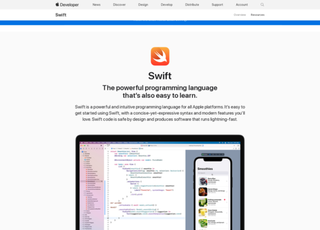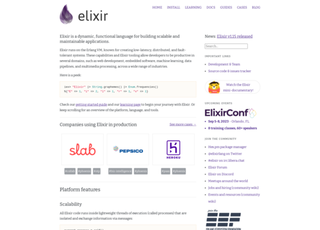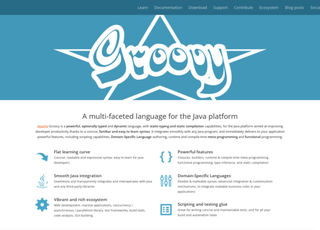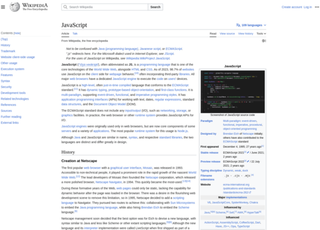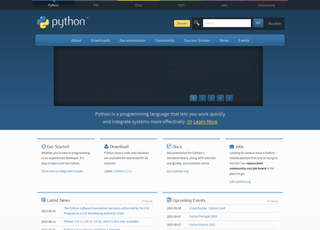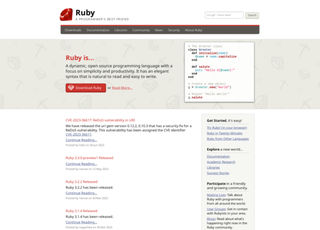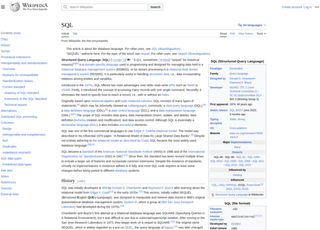TypeScript
https://www.typescriptlang.org/TypeScript
TypeScript is a superset of JavaScript developed by Microsoft. It introduces static typing to JavaScript, allowing developers to use types to ensure more predictable code and take advantage of modern development tools like code autocompletion, safe refactoring, and type-checking.
Here's a detailed review of TypeScript:
Pros of TypeScript:
Static Typing:
One of the most significant benefits is its optional static typing. It catches type-related errors at compile-time instead of runtime.
Improved Tooling and Development Experience:
The static typing system allows better autocompletion, navigation, and refactoring capabilities in IDEs.
Interface-based Development:
TypeScript introduces interfaces, which can be used to define custom types without creating classes or values.
Enhanced Object-Oriented Programming:
It supports advanced OOP features, such as interfaces, abstract classes, and generics.
Transpiles to JavaScript:
TypeScript can be compiled to different versions of JavaScript (ES3, ES5, ES6, etc.), making it flexible for different platform needs.
Comprehensive Library Definitions:
The DefinitelyTyped project and @types packages provide type definitions for numerous popular JavaScript libraries, allowing them to be safely and easily used within TypeScript.
Cons of TypeScript:
Learning Curve:
For developers new to statically-typed languages, there can be an initial learning curve.
Compilation Step:
Code needs to be transpiled to JavaScript, adding an extra step in the development process.
Sometimes Verbose:
Type annotations, interfaces, and other features can make TypeScript code more verbose than plain JavaScript.
Some Library Incompatibilities:
Not all JavaScript libraries have TypeScript type definitions, which may require developers to create custom type definitions or use type any as a workaround.
Key Features:
Type Annotations:
Allows developers to specify types for variables, function parameters, and function return values.
Interfaces:
Enables custom type definitions without creating concrete implementations.
Generics:
Offers a way to create reusable components that work with various types.
Modules and Namespaces:
Provides mechanisms to organize code and manage dependencies.
Decorators:
A special kind of declaration that can be attached to a class declaration, method, accessor, property, or parameter.
Advanced Types:
Union types, intersection types, type guards, nullable types, etc.
Community and Ecosystem:
Growing Popularity:
Over the years, TypeScript has gained immense popularity in the web development community, becoming one of the top languages on platforms like GitHub.
Integration with Modern Frameworks:
Major front-end frameworks like Angular, Vue, and React have embraced TypeScript, offering robust official or community-driven integrations.
Extensive Resources:
There is a plethora of tutorials, courses, and documentation available, making it easier for developers to learn and adopt TypeScript.
Active Maintenance:
The TypeScript GitHub repository is very active, with frequent contributions, discussions, and releases, indicating a healthy and responsive development community.
Comparison with Other Languages:
Flow:
Developed by Facebook, Flow is another static type checker for JavaScript. While it serves a similar purpose as TypeScript, the latter has gained more traction in the community due to its comprehensive feature set and better integration with popular tools and frameworks.
PureScript & Elm:
These are functional languages that compile to JavaScript and come with strong type systems. They offer a different paradigm compared to TypeScript, which remains closer to JavaScript.
Performance:
Compile-time:
Introducing TypeScript does add an overhead in terms of compilation. The TypeScript compiler, tsc, is quite efficient, but for very large projects, developers might notice a slight delay.
Runtime:
Since TypeScript compiles to JavaScript, there isn't a runtime performance overhead directly attributed to TypeScript. Any performance considerations will largely depend on the generated JavaScript.
Future Outlook:
Evolving Features:
TypeScript continues to evolve, with new features being proposed and added based on community feedback and the direction of ECMAScript.
Broader Adoption:
As more enterprises and projects recognize the benefits of type safety and tooling, TypeScript's adoption is expected to grow even further.
In the ever-evolving world of web development, TypeScript has carved out a significant niche for itself by addressing some of the longstanding concerns about JavaScript's flexibility. By providing a type-safe layer, it bridges the gap between rapid development and stable, maintainable code. While introducing TypeScript to a project can be a strategic decision, given the current trajectory and benefits, many find that it offers a net positive to their development workflow and codebase health.
If you are considering TypeScript for a project, it's essential to weigh its advantages against the learning curve and integration efforts. However, for many, the robustness, enhanced tooling, and peace of mind it offers make it a worthwhile investment.






















